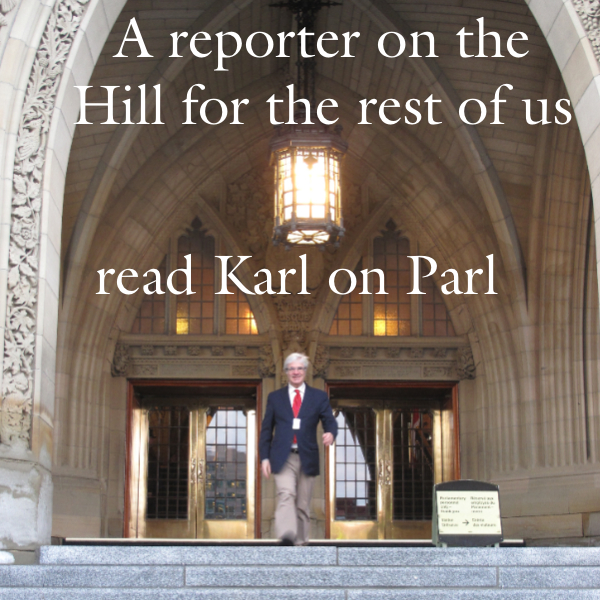This writer was at the Great Canadian Theatre Company in Ottawa, Thursday evening, when he ran into a Government of Canada lawyer who works in the constitutional division.
The lawyer was trying to enjoy the evening — a production of Shakespeare’s A Midsummer Night’s Dream put on by a team of fellow lawyers — but was more than a bit vexed by the imminent Supreme Court decision on the Harper government’s Senate reform reference.
Harper had asked the Supreme Court if he could, in effect, do an end run around the constitution and implement reforms to the Senate without the necessary provincial consent.
I told the vexed and worried lawyer to relax and enjoy the evening. The Supreme Court, I said, would (surprise, surprise) uphold the very clear and unambiguous language of the constitution. The Court would tell Harper (and Mulcair and Trudeau for that matter) that if the federal government wants to fundamentally change the Senate, in any significant way — ranging from elections to term limits to abolition — it will need provincial consent as laid out in the 1981 amending formula.
This writer is not usually right in his predictions or forecasts. In this case he was.
Today, the Supreme Court unanimously ruled:
The Senate is one of Canada’s foundational political institutions. It lies at the heart of the agreements that gave birth to the Canadian federation. Despite ongoing criticism and failed attempts at reform, the Senate has remained largely unchanged since its creation. The statute that created the Senate — the Constitution Act, 1867 — forms part of the Constitution of Canada and can only be amended in accordance with the Constitution’s procedures for amendment.
Those procedures for amendment mean either approval of the federal government plus seven provinces that make up at least 50 per cent of the population or, in some cases, unanimous agreement of all ten provinces. To change the Senate in significant ways (such as imposing term limits or requiring elections) the federal government would have to respect the ‘seven plus 50 per cent’ formula. To abolish the Upper House — Mulcair please take note — a federal government would need unanimity.
The only provision the Supreme Court said the federal government could change on its own is the one requiring Senators to own $4,000 worth of property in the provinces in which they “are resident.” The Supreme Court told Harper his government could drop that archaic provision without consultation or constitutional amendment.
It is notable that Harper did not ask the Supreme Court if he could change the constitutional provision that says Senators must “be resident” of the provinces they represent. Harper simply chose to ignore that rule when he appointed Pamela Wallin for Saskatchewan and Mike Duffy for Prince Edward Island. They both were, at the time of their appointments (and still are), residents of Ontario.
Harper also ignored that rule when he named his former aide Carolyn Stewart-Olsen a Senator for New Brunswick. She was living in Ottawa at the time, but when the Patrick Brazeau, Duffy, Wallin business blew up, she quickly re-established herself in her native province.
The key principle of the Supreme Court decision is that the Senate was at its origin supposed to be a central institution of the Canadian federal system — as are the Upper Houses of many other federations.
The idea is that while the Members of the House of Commons represent the general, national popular will, Senators should provide balance and advocate for the interests of their provinces.
In other federal countries, such as Germany, the Upper Houses actually work that way. In fact, in Germany, the Members of the Upper House, the Bundesrat, are named by the state (or Land) governments and have a veto power over legislation that relates to the constitutional responsibilities of the states (or Länder).
In Canada, that federal conciliating role is not played by any federal legislative body. Rather, we have a system of “executive federalism,” in which direct negotiations between the provincial Premiers and the federal Prime Minister do that job.
In Harper’s case, he has, to all intents and purposes, done away with that negotiation process and simply imposed federal decisions — on such matters as health funding or criminal sentences or gun control — on the provinces.
That, however, is a story for another day.
For now, the Supreme Court decision is problematic for all parties that have proposed anything resembling serious Senate reform.



